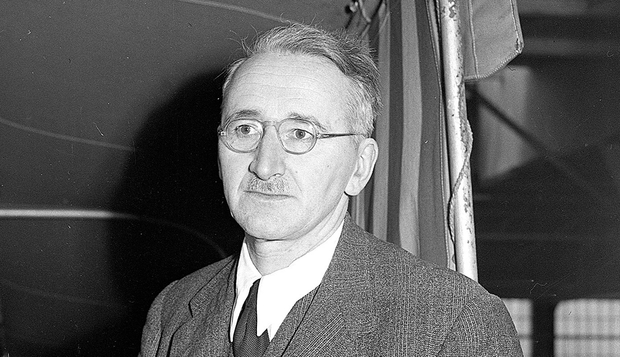Liberty Matters
Institutions, Spontaneous Order, and Liberalism
 The ongoing discussion has highlighted the importance of institutions in ensuring that societies can overcome the division of knowledge that characterizes all human social life. This was the context of Hayek's concern in the 1930s and 40s with the question of how markets, and particularly the price system, enabled us to make use of the dispersed, contextual, and tacit knowledge of other human actors.
The ongoing discussion has highlighted the importance of institutions in ensuring that societies can overcome the division of knowledge that characterizes all human social life. This was the context of Hayek's concern in the 1930s and 40s with the question of how markets, and particularly the price system, enabled us to make use of the dispersed, contextual, and tacit knowledge of other human actors.What Hayek's work more generally did was to give the long-standing case for liberalism the epistemic emphasis that is at the center of our discussion. In many ways, Hayek was building on the contributions of prior liberal thinkers. In particular, as I have argued elsewhere (Horwitz 2001), Adam Smith in the 18th century and Carl Menger in the 19th century are properly seen as the precursors to Hayek's 20th-century epistemic liberalism. It was Smith who gave us the first real glimpse of the market as a spontaneous order. It was Menger who not only expanded on the idea of spontaneous order, but refined our understanding of how the market operated through his value theory and microeconomics more generally.
Menger and the later economists of the Austrian school, such as Mises and Hayek, provided us with a more complete understanding of the way in which monetary calculation, the price system, and profit and loss enable humans with fragmentary knowledge to figure out how best to allocate resources and thereby channel self-interest into social cooperation. However, for that process to work, it is necessary to have the right institutional framework in place. Even Smith's invisible hand will not turn self-interest into social benefit without the right institutions. For example, where person and property are not protected, it is all too easy for self-interest to take the form of plunder, which provides no benefits for others.
The complication is that we normally cannot know ahead of time at any real level of detail what sorts of institutional arrangements will best facilitate the progress-enhancing spontaneous order of markets. As Menger recognized, many of the institutions that perform this function are themselves the product of unplanned social evolution. He (1985 [1883], 146) framed this as a question, which is often now termed the "Mengerian Question:" "How can it be that institutions which serve the common welfare and are extremely significant for its development come into being without a common will directed toward establishing them?" His answer was his own work explicating the operation of spontaneous orders, with his theory of money being the model for such explanations.
Menger's understanding of spontaneous-order processes in a variety of social institutions, along with Hayek's addition of the importance of knowledge, give us powerful reasons to think that spontaneously evolved institutions will be more effective than ones created from the top down. Combining these insights with the Austrian work on how the price system and other social institutions provide the feedback required for successful social coordination, we have a way of talking about the kind of comparative institutional analysis that has also been at the center of our discussions. We might summarize this perspective with a 21st-century version of the Mengerian Question:
How well do spontaneously evolved social, political, and economic institutions provide people with the knowledge and incentives they require to know that they have made mistakes and guide them on how to correct those mistakes, and can any other feasible institutions do any better?
It seems to me that is the question at the center of comparative political economy and that Hayek answers with his epistemic understanding of the virtues of liberal institutions.
References
Horwitz, Steven. 2001. "From Smith to Menger to Hayek: Liberalism in the Spontaneous Order Tradition," The Independent Review, 6 (1), Summer: pp 81-97.
Menger, Carl. 1985 [1883]. Investigations into the Method of the Social Sciences with Special Reference to Economics, New York: New York University Press.
Copyright and Fair Use Statement
“Liberty Matters” is the copyright of Liberty Fund, Inc. This material is put on line to further the educational goals of Liberty Fund, Inc. These essays and responses may be quoted and otherwise used under “fair use” provisions for educational and academic purposes. To reprint these essays in course booklets requires the prior permission of Liberty Fund, Inc. Please contact oll@libertyfund.org if you have any questions.